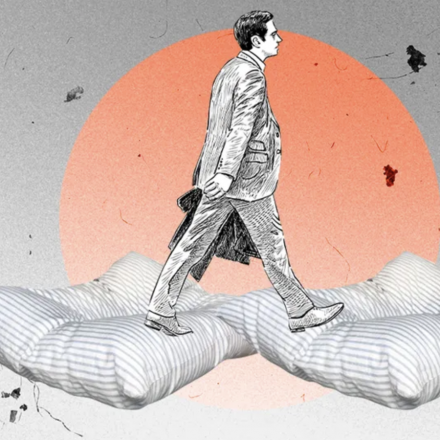Strong People Don’t Tolerate Nonsense
High-performing professionals won’t waste their lives in workplaces where common sense drowns in bureaucracy, jealousy, and overcontrol. They quickly read the room and realize: the company isn’t built for real performance. One top analyst quit after just four months, saying: “I know how to work, but you only know how to survive.” For strong people, it’s not about “holding a chair” — it’s about seeing results and knowing their work truly matters.
Micromanagement Kills Talent
Nothing drives away smart, strong people faster than pointless micromanagement — where mountains of reports matter more than actual results, and promotions go to those closest to the boss, not the ones delivering value. Strong performers don’t fight for office politics — they look for purpose. And when they don’t find it, they leave for a place where trust outweighs bureaucracy and results matter more than rituals.
Why Empty Suits Are Eternal
Career clingers are like cockroaches after the apocalypse — they always find a way to survive. They wrap inactivity in the shiny paper of “initiative” and keep their seats for years. They don’t care about productivity — only the illusion of value. Their goal isn’t achievement, but status. They stall projects, block initiatives, yet appear loyal by purring compliments and staying close to decision-makers.
Strong People Leave Quietly
The best employees rarely make a scene. Strong professionals don’t complain or throw tantrums — they simply act. When they see rot inside the company, they don’t waste energy trying to fix a doomed system. They go where they’re respected, where their voices are heard, and where they can breathe. Those left behind are the ones who can sit tight, avoid risk, and stretch responsibility across ten group chats and twelve endless meetings. Slowly, a deadly but invisible stagnation begins.
Purpose Over Pointless Team Building
Strong people work for meaning. They don’t need pizza Fridays or awkward trust falls — they need the freedom to do their jobs well. As long as companies reward the “comfortable” instead of the “valuable,” strong employees will always be the first to leave. Ironically, they’re usually the only ones who are truly hard to replace.
The Trap of the “Corporate Family”
When a company turns into a fake family where socializing matters more than actual performance, strong employees start to feel like outsiders. They don’t want to waste hours at endless small talk sessions or forced happy hours. They want recognition for their skills, not for how often they smile in the company’s Instagram feed.
No Growth, No Challenge
For top performers, a job without challenge is a slow death. They leave the moment they realize their skills are stagnating and the work has become a copy-paste routine. While others are happy to coast on autopilot, strong employees crave growth, development, and the sense they’re moving forward.
The “Comfortable” Over the Capable
When leadership values compliance over results, the company is headed for trouble. Strong professionals can’t work where every good idea is met with “Let’s talk about it later.” For them, “later” means “never.” And that’s the moment they start updating their résumés.
It’s Not About the People Who Leave — It’s About the System
If your best people keep walking out the door, don’t blame them for being “disloyal.” Look at your system. Maybe your leadership style is creating an environment where the politically safe thrive while the truly strong can’t breathe. As menscult.net points out, it’s not the leavers who are the problem — it’s the culture that made them leave.
If your team keeps losing top talent, the question isn’t “What’s wrong with them?” It’s “Are we leading for strong professionals… or just making life easy for the ones who know how to survive between coffee breaks, reports, and pointless meetings?”


















